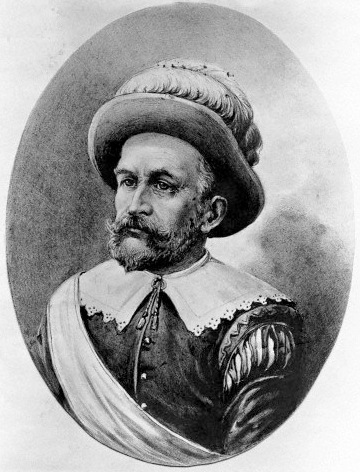Orang Wallonia: Perbedaan antara revisi
Tampilan
Konten dihapus Konten ditambahkan
k bot Menambah: tt:Валлоннар |
Tidak ada ringkasan suntingan Tag: Suntingan perangkat seluler Suntingan peramban seluler Suntingan seluler lanjutan |
||
| (23 revisi perantara oleh 15 pengguna tidak ditampilkan) | |||
| Baris 1: | Baris 1: | ||
{{Infobox Ethnic group| |
{{Infobox Ethnic group| |
||
| group= |
| group=Orang Wallonia |
||
| image=[[Berkas:Peter Minuit portrait New Amsterdam 1600s light.jpg]] |
| image=[[Berkas:Peter Minuit portrait New Amsterdam 1600s light.jpg]] |
||
| caption=[[Peter Minuit]] |
| caption=[[Peter Minuit]] |
||
| region1=[[ |
| region1=[[Wallonia]] |
||
| region2=[[Swedia]] |
| region2=[[Swedia]] |
||
| pop1= |
| pop1= |
||
| Baris 22: | Baris 22: | ||
| reftot= |
| reftot= |
||
| origine= |
| origine= |
||
| languages=[[bahasa |
| languages=[[bahasa Prancis|Prancis]], [[Bahasa Wallonia|Wallonia]], [[bahasa Picard|Picard]] |
||
| religion=[[Katolik]], [[Ateisme]] |
| religion=[[Katolik]], [[Ateisme]] |
||
| related ethnic group=[[ |
| related ethnic group=[[Orang Belanda|Belanda]], [[Orang Flandria|Flandria]], [[Orang Jerman|Jerman]], [[Orang Prancis|Prancis]] |
||
}} |
}} |
||
''' |
'''Orang Wallonia''' ({{lang-fr|Wallons}}, {{lang-wa|Walons}}) adalah sebuah kelompok etnis berbahasa Roman yang sebagian keturunan Jerman dan Keltik<ref>A Henri Holt Reference Book, (Page 645: « The Walloons are descended from Germanic (Frankish) invaders who were culturally absorbed into the romanized sphere in which they settled and came to speak a French dialect »</ref><ref>Félix Rousseau,''La Wallonie, Terre romane'', Charleroi, 1993, p.60: ''brassage humain [melting-pot]... creuset où sont venus se fondre des éléments ethniques surgis [who came] de tous les points de l'horizon [from everywhere]''. P. 112: ''Germanic people named all their neighbours in the South ''Wahla'' (...) from which our '' Walloon '' is deriving (...) it means the Foreigner, the Celtic people, the Roman people vis-à-vis the German people''.</ref><ref> Albert Henry, ''Histoire des mots Wallons et Wallonie'', Institut Jules Destrée, Coll. «Notre histoire», Mont-sur-Marchienne, 1990, 3rd ed. (1st ed. 1965), p. 20, following Leo Weinsberger, ''Die geschichtliche Leistung des Wortes welsch'', in ''Rheinische Vierteljahrsblätter'', t. XIII, 1948, pp. 87-146, wrote about ''the Germanic and Celtic prehistory of the word Walloon''.</ref> yang menuturkan [[bahasa Prancis]] dan tinggal di [[Belgia]]. Mereka sebagian besar tinggal di [[Wallonia]] dan [[Brussel]]. Selain menuturkan bahasa Prancis, mereka juga menuturkan [[bahasa Wallonia]] dan [[bahasa Picard]]. Kedua bahasa ini merupakan dialek bahasa Prancis. |
||
== Referensi == |
== Referensi == |
||
| Baris 33: | Baris 33: | ||
{{masyarakat-stub}} |
{{masyarakat-stub}} |
||
[[Kategori: |
[[Kategori:Kelompok etnik di Belgia]] |
||
[[an:Valons]] |
|||
[[de:Wallonen]] |
|||
[[en:Walloons]] |
|||
[[fi:Vallonit]] |
|||
[[fr:Wallons]] |
|||
[[hr:Valonci]] |
|||
[[it:Valloni (Vallonia)]] |
|||
[[ja:ワロン人]] |
|||
[[nl:Walen]] |
|||
[[pl:Walonowie]] |
|||
[[pt:Valões (povo)]] |
|||
[[ru:Валлоны]] |
|||
[[sv:Valloner]] |
|||
[[tt:Валлоннар]] |
|||
[[wa:Walons]] |
|||
[[zh:瓦隆人]] |
|||
Revisi terkini sejak 21 Februari 2024 03.15
 | |
| Daerah dengan populasi signifikan | |
|---|---|
| Bahasa | |
| Prancis, Wallonia, Picard |
Orang Wallonia (bahasa Prancis: Wallons, bahasa Walonia: Walons) adalah sebuah kelompok etnis berbahasa Roman yang sebagian keturunan Jerman dan Keltik[1][2][3] yang menuturkan bahasa Prancis dan tinggal di Belgia. Mereka sebagian besar tinggal di Wallonia dan Brussel. Selain menuturkan bahasa Prancis, mereka juga menuturkan bahasa Wallonia dan bahasa Picard. Kedua bahasa ini merupakan dialek bahasa Prancis.
Referensi
[sunting | sunting sumber]- ^ A Henri Holt Reference Book, (Page 645: « The Walloons are descended from Germanic (Frankish) invaders who were culturally absorbed into the romanized sphere in which they settled and came to speak a French dialect »
- ^ Félix Rousseau,La Wallonie, Terre romane, Charleroi, 1993, p.60: brassage humain [melting-pot]... creuset où sont venus se fondre des éléments ethniques surgis [who came] de tous les points de l'horizon [from everywhere]. P. 112: Germanic people named all their neighbours in the South Wahla (...) from which our Walloon is deriving (...) it means the Foreigner, the Celtic people, the Roman people vis-à-vis the German people.
- ^ Albert Henry, Histoire des mots Wallons et Wallonie, Institut Jules Destrée, Coll. «Notre histoire», Mont-sur-Marchienne, 1990, 3rd ed. (1st ed. 1965), p. 20, following Leo Weinsberger, Die geschichtliche Leistung des Wortes welsch, in Rheinische Vierteljahrsblätter, t. XIII, 1948, pp. 87-146, wrote about the Germanic and Celtic prehistory of the word Walloon.
